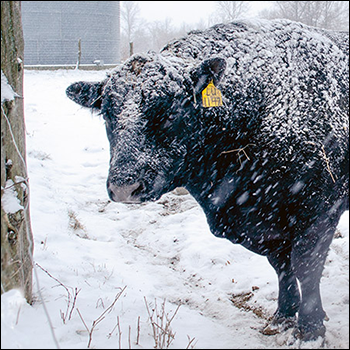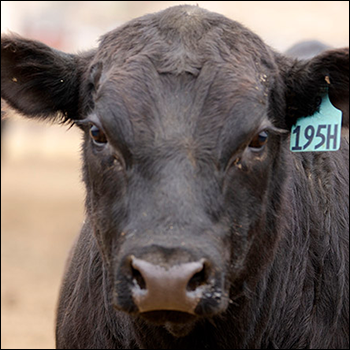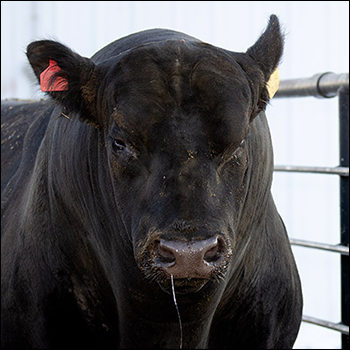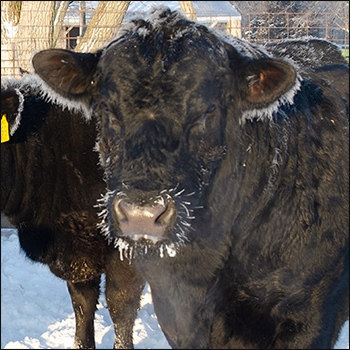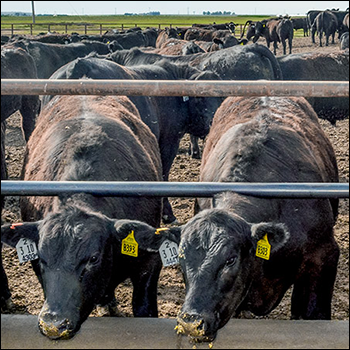
Your Health: Diet Can Improve Melanoma Treatment
A high-fiber diet may improve the response of melanoma patients to immunotherapy.
A diet rich in fiber may help some people being treated for melanoma to respond to immunotherapy treatment by influencing the gut microbiome, according to a new study led by researchers at the Center for Cancer Research at the National Cancer Institute (NCI), part of the National Institutes of Health, and the University of Texas MD Anderson Cancer Center. Results from the study, which analyzed both people with melanoma and mouse models of the disease, appear in Science.
Among patients with advanced melanoma who underwent immunotherapy with immune checkpoint blockers, those who consumed at least 20 grams per day of dietary fiber survived the longest without their disease progressing. In contrast, use of probiotic supplements appeared to lessen somewhat the effectiveness of immune checkpoint blocker regimens. Probiotics are live microorganisms typically consumed as a supplement to improve gut health.
“The data suggest that one can target the composition of the gut microbiota and affect the ability of the patient to respond to immunotherapy,” says Giorgio Trinchieri, chief of the Laboratory of Integrative Cancer Immunology in NCI’s Center for Cancer Research, one of the study’s co-leaders. “Consuming a diet rich in fiber, like fruits, vegetables and legumes, could improve your ability to respond to immunotherapy.”
Immunotherapy with immune checkpoint blockers helps restore the immune system’s natural ability to recognize and kill tumor cells. These drugs have been transformative in melanoma, improving how long some people with advanced disease live, sometimes by years. However, for many patients, immune checkpoint blockers fail to stop their tumors from growing. Several studies have suggested that the composition of the bacteria in the gut may influence the response to immunotherapy.
“The question is, can we change the composition of the type of bacteria in the gut and improve the ability of the patient to respond?” Trinchieri says.
In a previous study, Trinchieri and a different group of collaborators showed that some people with melanoma who initially did not respond to treatment with an immune checkpoint blocker did respond after receiving a fecal transplant from a patient who had responded to the drug. The fecal transplant, they concluded, had introduced different gut bacteria that helped make it easier for immune cells to invade and kill their tumors.
“Dietary fiber intake and use of probiotic supplements have also been shown to affect the composition of gut bacteria. More cancer patients are taking probiotic supplements in an effort to improve their gut health, but little is known about how probiotics — which basically change the ecology of the gut bacteria — impact immunotherapy response,” he says.
The connection between fiber intake and immunotherapy response has also been unclear. However, a recent study led by Romina Goldszmid, also of NCI’s Center for Cancer Research, showed that mice fed a diet rich in pectin, which is a fiber abundant in apples, were able to stave off tumor growth by activating immune cells and reprogramming the tumor microenvironment.
In the new study, Trinchieri and study co-leads Carrie Daniel-MacDougall and Jennifer Wargo, of the University of Texas MD Anderson Cancer Center, and their collaborators looked at the composition of fecal microorganisms (the gut microbiota), dietary habits and probiotic supplement use among patients who were being treated for advanced melanoma with immune checkpoint blockers.
Among the 128 patients whose dietary fiber intake was known, those who reported consuming at least 20 grams of dietary fiber per day (an amount the researchers designated as “sufficient” for the purposes of this study) lived longer without their cancer progressing than those who consumed less dietary fiber. Every 5-gram increase in daily dietary fiber intake corresponded to a 30% lower risk of progression of the disease.
The researchers also looked at the effects of dietary fiber on the response to treatment with anti-PD-1 drugs, a category of immune checkpoint blockers, in mouse models of melanoma. To mimic the different diets in the melanoma patients, they fed mice either a fiber-rich or a low-fiber diet, injected the mice with melanoma cells, and then treated the mice with anti-PD-1 therapy. Mice given the fiber-rich diet had delayed tumor growth after anti-PD-1 treatment, compared with mice given the low-fiber diet.
The researchers then repeated the experiments in germ-free mice — that is, mice that have no bacteria in their guts.
“In germ-free mice, the diet made no difference in the immunotherapy response,” Trinchieri says. “That suggests that the diet is affecting the response to immune checkpoint therapy by changing the composition of the gut microbiota.”
Trinchieri noted that one possible mechanism through which dietary fiber exerts its beneficial effect is by increasing the types of bacteria in the gut, such as Ruminococcaceae, that produce high levels of certain short-chain fatty acids that have an antitumor effect.
“We did see an increase in one of these short-chain fatty acids, propionate, in mice that were fed a high-fiber diet,” Trinchieri says. “Moreover, patients whose cancer responded to immunotherapy had a greater abundance of Ruminococcaceae bacteria in their gut microbiota compared with those who did not respond to therapy.”
The researchers also looked at the effect of probiotics on gut bacteria in the mouse model of melanoma. Mice fed probiotics had a reduced response to treatment with anti-PD-L1 drugs and developed larger tumors than control mice. Further analysis showed that mice fed probiotics had lower levels of tumor-killing immune cells, suggesting a weakened immune response.
In the human study, nearly one-third of the patients reported they had taken a probiotic supplement within the past month. Although the researchers noted that the small sample size and variety of probiotics used by the patients made it difficult to draw definitive conclusions about the association between probiotic use and response to immune checkpoint blockers, they did observe that patients who consumed the highest levels of dietary fiber with no probiotic use survived the longest.
“The impact of dietary fiber and probiotics on the gut microbiota is only part of the bigger picture,” Trinchieri cautions. “Many factors can affect the ability of a patient with melanoma to respond to immunotherapy. However, from these data, the microbiota seems to be one of the dominant factors. The data also suggest that it’s probably better for people with cancer receiving immunotherapy not to use commercially available probiotics.”
He noted that larger studies are warranted and should include cancers other than melanoma.
Editor’s note: This article is from the National Institutes of Health. Lead photo from Getty Images.

Angus Proud
In this Angus Proud series, Editorial Intern Jessica Wesson provides insights into how producers across the country use Angus genetics in their respective environments.
 Angus Proud: Bubba Crosby
Angus Proud: Bubba Crosby
Fall-calving Georgia herd uses quality and co-ops to market calves.
 Angus Proud: Jim Moore
Angus Proud: Jim Moore
Arkansas operation retains ownership through feeding and values carcass data.
 Angus Proud: Les Shaw
Angus Proud: Les Shaw
South Dakota operation manages winter with preparation and bull selection.
 Angus Proud: Jeremy Stevens
Angus Proud: Jeremy Stevens
Nebraska operation is self-sufficient for feedstuffs despite sandy soil.

